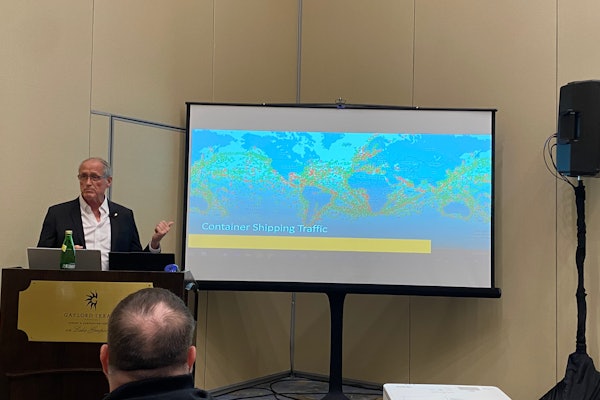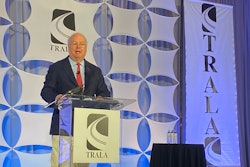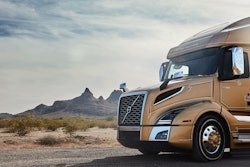
Navistar announced its NEXT eMobility Solutions business unit signed a master services agreement with In-Charge Energy, an energy solutions company based in Los Angeles, to provide charging infrastructure and consulting services to Navistar and its electric vehicle customers. Additionally, Volvo, in collaboration with key suppliers participating in the Volvo LIGHTS (Low Impact Green Heavy Transport Solutions) project, announced REMA EV Connections has secured UL certification for its Combined Charging System CCS2 connector.
Navistar says the NEXT program was launched last fall and has focused its eMobility development on a comprehensive “four Cs” approach – Consulting, Construction, Charging and Connecting. This partnership strengthens Navistar’s ability to provide customers with superior support in each of these categories, the company says.
“With electric vehicles, it’s important to understand that we can provide the very best bus or truck for our customers, but if they don’t have a partner to show them how to operate it, charge it or take care of it in the long run, it likely won’t be a successful deployment,” says Jason Gies, director, business development, Navistar. “This partnership ensures that IC Bus and International Truck customers have the infrastructure support they need to ultimately be successful in electric.”
“The total cost of ownership with electric vehicles promises to be less than conventional vehicles; however, that is only possible with well-designed charging infrastructure and a trusted partner,” adds Cameron Funk, CEO, In-Charge. “Navistar has the right vision and In-Charge is pleased to provide their end-to-end charging solution.”
Navistar’s Bob Walsh, vice president, Emerging Technology, Strategy and Planning, says thanks to the partnership, “We can truly provide our customers with a partner for the entire electrification process – from initial interest to having a full fleet of electric vehicles and beyond.”

To date, the Combined Charging System CCS1 connector has been prevalent in North America, while CCS2 has been prevalent throughout the rest of the world — including Europe, Australia, South America, Africa, and Asia. Volvo says the UL certification indicates a nationally recognized testing laboratory has verified that CCS2 connectors meet North American safety standards, which enables fleet operators to purchase these fast charging systems directly from suppliers — including Volvo LIGHTS vendor, ABB — and not have to go through a complex field certification process after the chargers are installed.
Additionally, it paves the way for utilities and other agencies to expand their list of approved charging options for electric vehicle fleet infrastructure programs, the company says.
“The CCS2 UL-certification will give fleets more charging options and greater flexibility for integrating battery-electric vehicles into their fleets in a very nascent marketspace,” says Keith Brandis, vice president, partnerships and strategic solutions, Volvo Group. “As part of the innovative Volvo LIGHTS project, our team was happy to collaborate with ABB and REMA to accelerate the UL certification of the CCS2 connector, which will be used to charge Volvo’s pilot VNR Electric trucks.”
Volvo says the Combined Charging System joins AC and DC charging into a single port on the vehicle. The CCS1 and CCS2 connectors primarily differ with the type of AC charging. The CCS1 is designed for single-phase AC charging, while the CCS2 enables 3-phase AC charging via the J3068 NA standard.
“Some medium- and heavy-duty fleet operators will benefit from AC charging, as it can greatly simplify infrastructure installation by making use of an on-board converter located on many electric vehicles,” Brandis says.
For implementation, Volvo says ABB has been tapped as the preferred charging hardware provider for the Volvo LIGHTS project and is installing a mix of high voltage-capable public and private electric vehicle chargers that utilize REMA’s CCS2 connectors, including the Terra 54HV (50 kW) and the HVC 150 Depot Box (150 kW).
“Flexibility is the key to success in a dynamic industry like fleet electrification,” says Bob Stojanovic, director of EV infrastructure, ABB North America. “As the first charger manufacturer to offer multi-standard EV chargers, ABB was ready to support this initiative with safe, reliable charging solutions. We look forward to being able to deliver UL-certified CCS2 charging systems to fleet operators in North America.”










